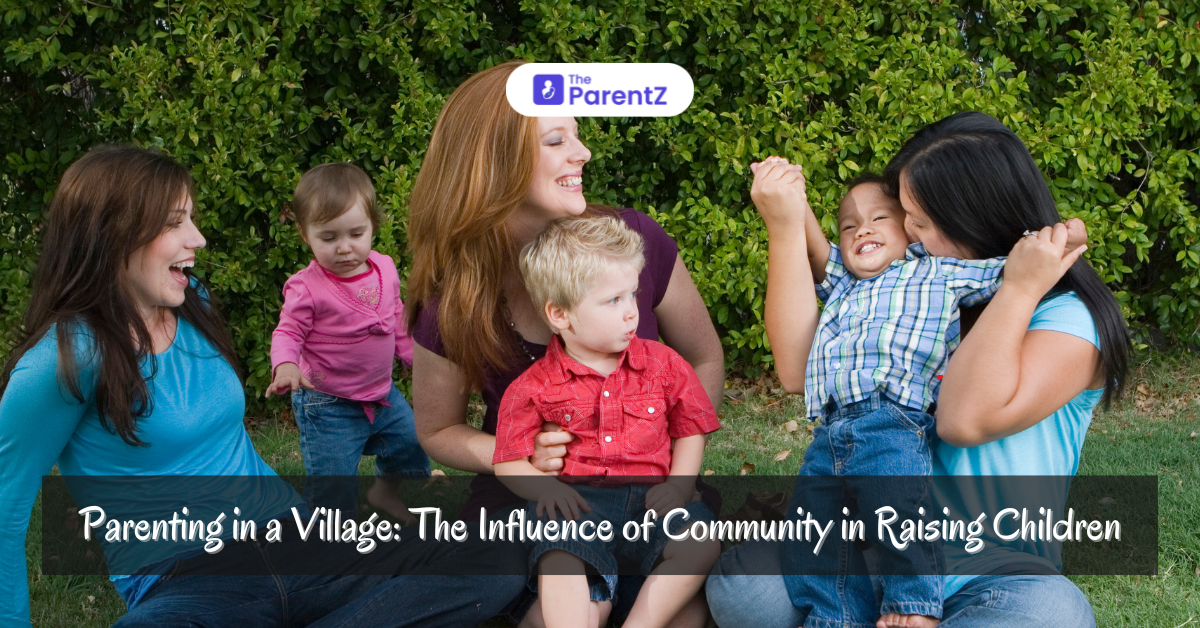The proverb “It takes a village to raise a child” is deeply rooted in the idea that raising children is not solely the responsibility of the parents, but involves the whole community. This concept originates from traditional societies where communities played an active role in nurturing, educating, and disciplining children. Village parenting is a communal approach where family members, neighbors, and community elders contribute to a child’s upbringing, sharing the responsibilities and joys of raising the next generation.
In today’s modern world, where urbanization and individualism often dominate, the concept of village parenting has shifted. However, the principle of shared responsibility remains relevant. Parenting in a village setting, whether literal or metaphorical, continues to offer significant benefits, such as fostering strong social bonds, accountability, and shared values. This article will explore both traditional and modern village parenting, highlighting the benefits and challenges of raising children within a community context.
Traditional Village Parenting
In traditional village settings, parenting was never seen as a sole responsibility of the biological parents. Instead, child-rearing was viewed as a collective effort. In many cultures, grandparents, aunts, uncles, neighbors, and even older siblings played integral roles in raising a child. This distributed form of parenting provided children with a wide array of role models, each offering different perspectives, skills, and forms of support.
Village elders, who were considered the keepers of wisdom and cultural knowledge, often played a significant role in imparting life lessons and moral values. The close-knit nature of village life meant that everyone took responsibility for the well-being of the children in their community. This shared responsibility ensured that children were constantly under the watchful eyes of caregivers, learning not only from their own parents but from the collective guidance of the community.
In a traditional village setting, discipline was also a communal affair. If a child misbehaved, it wasn’t uncommon for a neighbor or elder to step in and correct the child’s behavior. This sense of accountability extended beyond the home, reinforcing shared social values. Moreover, children in villages typically had the freedom to explore their environment in ways that fostered independence, curiosity, and resilience, knowing that they had a network of adults who would keep them safe and provide guidance.
In summary, traditional village parenting was characterized by shared responsibilities, communal discipline, and a deep connection to cultural and social values, providing children with a strong support system.
Modern Day Village Parenting
With the rise of urbanization and nuclear families, the concept of village parenting has transformed. In modern society, many parents no longer live in tight-knit communities where extended family members and neighbors play a daily role in child-rearing. Instead, many families find themselves raising children in isolated settings, often far from their support networks. However, the principles of village parenting can still be applied in modern contexts.
In today’s world, the “village” may look different. It may include teachers, daycare providers, sports coaches, and community leaders who support a child’s development. Social networks—both online and offline—also play a role in recreating the sense of community that village life once provided. Parents can turn to these extended networks for advice, help, and shared experiences, thereby mimicking the supportive environment of a traditional village.
Community-based organizations such as schools, local sports clubs, or faith-based groups have taken on some of the roles that were once filled by village elders. These organizations offer opportunities for children to interact with peers and learn from adult mentors outside their immediate family. Moreover, modern technology allows families to stay connected with extended relatives or friends, even if they live far apart. Virtual communication tools help maintain those essential social bonds that were once nurtured in village settings.
However, modern village parenting comes with its own set of challenges. Parents must make intentional efforts to build these networks and ensure that their children are exposed to diverse role models and community influences, despite the more disconnected nature of contemporary life.
Benefits of Community Involvement
Community involvement in raising children offers numerous benefits, both for the child and the parent. Children who grow up in a close-knit community have access to multiple role models who provide guidance, support, and diverse perspectives on life. This communal environment can enrich a child’s social and emotional development.
- Emotional Support: A strong community provides a sense of belonging and emotional security. Children who are surrounded by supportive adults and peers are more likely to feel safe, valued, and understood. They also learn to trust and rely on others, which is crucial for forming healthy relationships later in life.
- Social Skills: Being part of a community teaches children how to interact with different people, follow social norms, and develop empathy. Children exposed to various personalities and experiences learn how to navigate complex social environments, improving their communication skills and emotional intelligence.
- Cognitive and Emotional Development: Engaging with different adults and peers stimulates a child’s cognitive growth. Communities can expose children to different ideas, cultures, and ways of thinking, fostering creativity, critical thinking, and problem-solving skills. Moreover, the emotional safety net provided by the community helps children build resilience, as they know they have a network to turn to in times of need.
Overall, community involvement in parenting supports a child's holistic development by providing diverse learning experiences and emotional anchors.
Challenges of Village Parenting
While village parenting offers numerous benefits, it also comes with certain challenges, particularly in a modern context. One of the main challenges is reconciling traditional values with contemporary expectations. In many traditional villages, parenting norms were guided by communal values, which sometimes clash with modern parenting ideologies centered around individualism and personal autonomy.
- Conflicting Parenting Styles: In a village setting, parents may receive unsolicited advice or face pressure to conform to community standards, which may not always align with their personal parenting beliefs. For example, a family may wish to adopt a more progressive or liberal approach to discipline, while community members may hold more conservative views.
- Over-involvement or Judgment: In close-knit communities, the line between helpful involvement and over-involvement can blur. Parents may feel judged or criticized by community members for their parenting choices, leading to stress or conflict.
- Adapting to Modern Life: In today’s fast-paced, globalized world, many parents struggle to find time to engage with their community. Between work, school, and extracurricular activities, building a village-like support system requires intentional effort and time, which can be difficult to maintain.
Despite these challenges, village parenting remains valuable for its ability to provide emotional and social support for both parents and children.
Conclusion
Parenting within a community, whether in a traditional village or a modern urban setting, offers invaluable support and guidance for raising well-rounded children. The collective responsibility and diverse perspectives provided by a village help children develop resilience, emotional intelligence, and social skills. Although modern life has altered the structure of village parenting, its core principles—shared responsibility, emotional support, and community involvement—remain relevant. By fostering connections and involving others in the child-rearing process, parents can recreate the village dynamic and ensure their children grow up with a strong sense of belonging and support.









Be the first one to comment on this story.